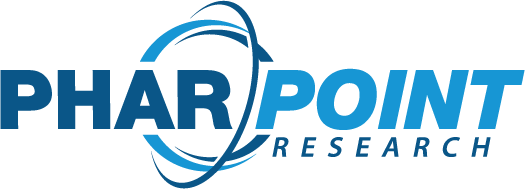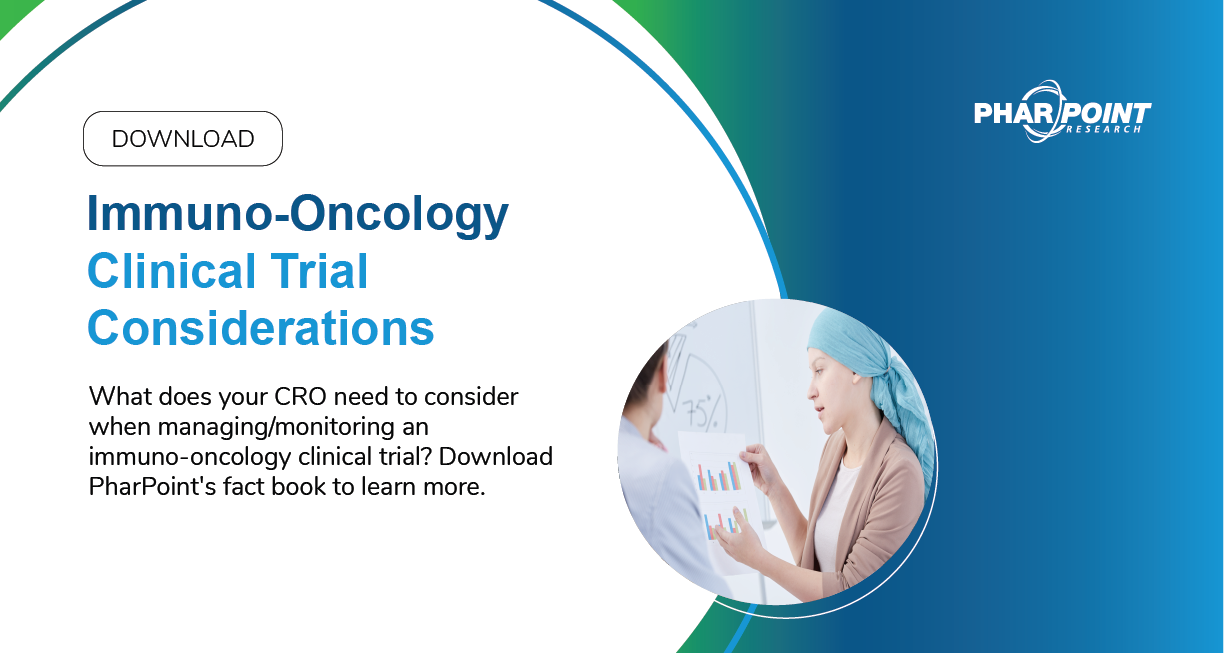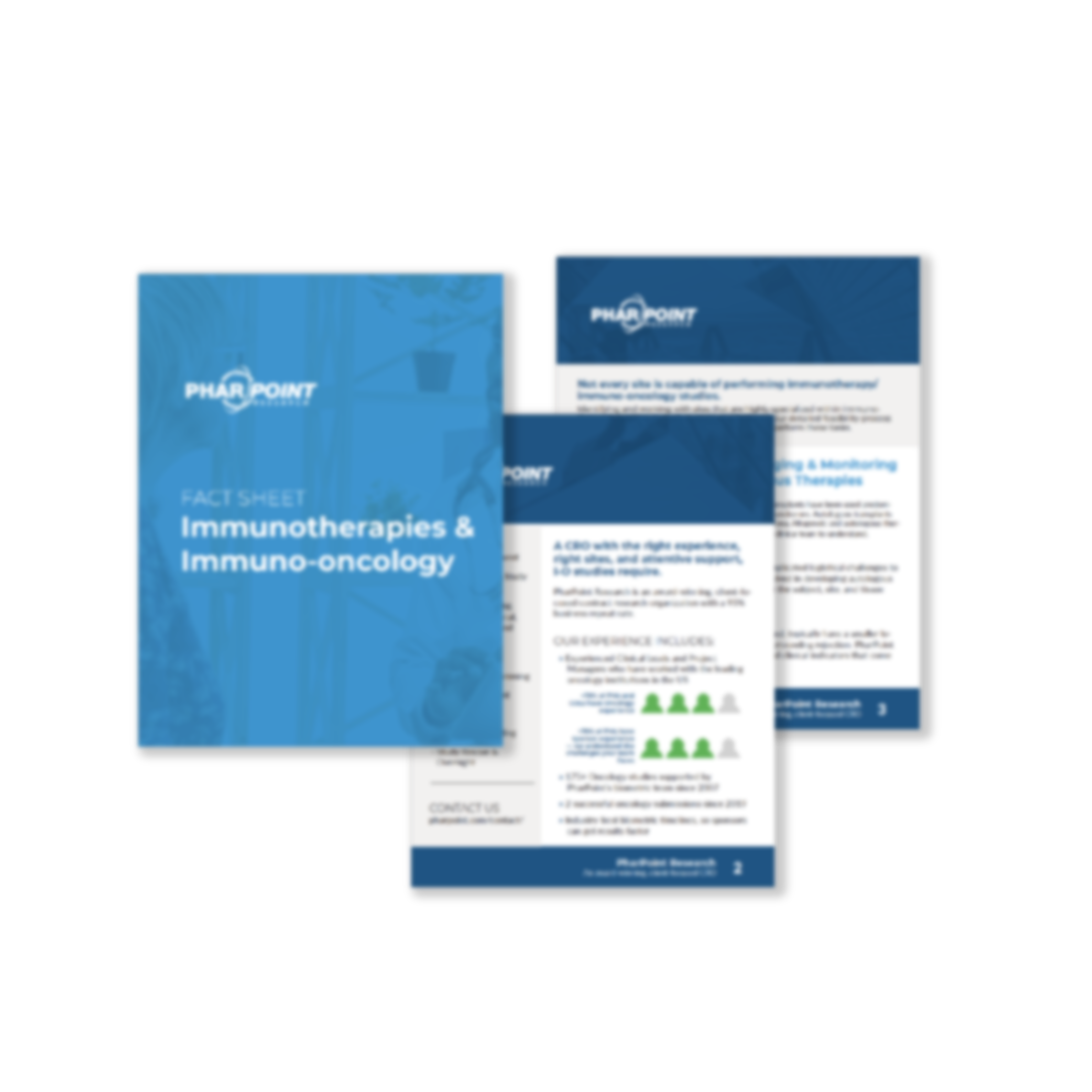Considerations for Managing and Monitoring Your Immuno-Oncology Clinical Trial
Ensuring better site selection and understanding the challenges of allogeneic and autologous therapies
Immuno-oncology clinical trials are more popular than ever, with recent advances in technology and approvals marking it as the “future of cancer therapies” in the eyes of many researchers.
However, these studies also come with their own unique challenges – and partnering with an experienced CRO that can better manage and monitor your study is critical to success.
Introduction to Immuno-Oncology Studies
Immuno-oncology involves the use of checkpoint inhibitors, cellular therapy, cancer vaccines, and other modalities to treat cancer. This approach uses the power of the body’s own immune system to help fight cancer.
Starting in the early 2010s, the first wave of immuno-oncology trial approvals began. From 2014 to 2017, new trials within immuno-oncology grew nearly 140%, primarily with biomarker and checkpoint inhibitor studies.
Featured Resource: Learn more about PharPoint’s oncology experience
From 2019 to 2020, the cancer cell therapy pipeline grew from 472 active agents to 1,483 active agents globally. Chimeric antigen receptor T (CAR-T) cell products had the greatest growth within this period at approximately 77%.
How I-O is Different
Immuno-therapy differs from cytotoxic chemotherapy, and these differences often have impacts on areas such as dosing, response measurement, biomarker validation, and the identification of adverse events.
Within response measurement, for example, traditional oncology studies typically use RECIST criteria (Response Evaluation Criteria in Solid Tumors). Within immuno-oncology however, the criteria do not easily apply: for example, a phenomenon called the “flare effect” often impacts patients. In these scenarios, patients may first exhibit an increase in tumor burden, followed by shrinkage.
When conducting a clinical trial for an immuno-oncology therapy, there may be numerous operational and logistical differences verses traditional oncology studies. By partnering with a knowledgeable, properly equipped partner, these differences can be accounted for.
Facing Common Challenges within Immuno-Oncology Clinical Research
It’s important the CRO you choose fully understands the challenges that come with immuno-oncology clinical trials. The right CRO – with the right expertise, resources, and capabilities – can mitigate risks.
Strategic site selection
Of course, not every site has the capabilities necessary to support immuno-oncology clinical research.
Identifying and working with sites that are highly specialized within immuno-therapies is critical to study success. At PharPoint, our detailed feasibility process ensures the sites selected for your studies are able to perform these tasks.
Understanding nuances within immuno-oncology clinical trials: allogeneic vs. autologous therapies
Generally speaking, as it relates to oncology, allogeneic transplants have been used predominately in the treatment of leukemias and myelodysplastic syndromes. Autologous transplants are used more often in solid tumors, lymphoma, and myeloma.
If a CRO is selecting sites for an immuno-oncology clinical trial, it’s important that both the CRO team and sites selected have an understanding of the different obstacles encountered when managing and monitoring allogeneic vs. autologous therapies.
Autologous therapies: Autologous therapies typically have highly complicated logistical challenges to face, and require a CRO that’s up to the challenge and capable of mitigating risk and avoiding delays. Organizations with the right experience will have a strong understanding of the lead time involved in developing autologous therapies. They’ll have experience managing this at the subject, site, and tissue culturing level.
Allogeneic therapies: Allogeneic therapies, on the other hand, typically have a smaller logistical burden for CROs to manage. However, as these therapies have an increased complexity surrounding rejection, an understanding of the adverse events and clinical indicators that come with allogeneic therapies is critical.
Conclusion
Immuno-oncology is a significant area for oncology drug discovery and development, and successful studies require a team that can provide the right experience, resources, and strategy.
PharPoint’s team has significant experience within this area, and is equipped to help sponsors bring their life-changing therapies to patients faster. For more information regarding our experience, contact our team and download our Immuno-oncology and Immunotherapies Factbook below.





